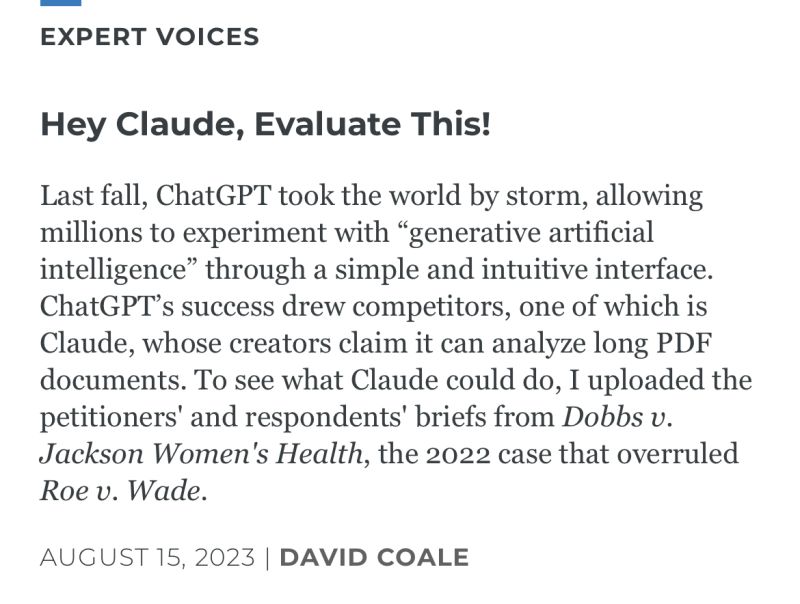Former Justice Lana Myers has been named as Lt. Gov. Dan Patrick’s counsel in connection with the upcoming impeachment proceedings of Ken Paxton.
Monthly Archives: August 2023
 In Moby-Dick, Captain Ahab nailed a gold coin to the mast as an incentive to spot the white whale. In Combs v. Crepeau, the judgment debtor deposited a gold coin into the trial court’s registry as part of the supersedeas for a substantial civil judgment. The Fifth Court distinguished a permissible order requring a cash deposit from an impermissible order appointing a post-judgment receiver (in the supersedeas setting), noting: “Placing money into the court’s registry is a means of keeping the money safe.” No. 05-23-00088-CV (Aug. 21, 2023) (mem. op.).
In Moby-Dick, Captain Ahab nailed a gold coin to the mast as an incentive to spot the white whale. In Combs v. Crepeau, the judgment debtor deposited a gold coin into the trial court’s registry as part of the supersedeas for a substantial civil judgment. The Fifth Court distinguished a permissible order requring a cash deposit from an impermissible order appointing a post-judgment receiver (in the supersedeas setting), noting: “Placing money into the court’s registry is a means of keeping the money safe.” No. 05-23-00088-CV (Aug. 21, 2023) (mem. op.).
Topletz v. Choice affirmed, in part, a class action of tenants against the owners of several rental properties in Dallas. The reversal turned on the extent of the landlord’s liability under several sections of the Property Code, which in turn involved application of the supreme court’s recent opinion about a similar class action in American Campus Communities, Inc. v. Berry, 667 S.W.3d 277, 283 (Tex. 2023). No. 05-22-00781-CV (Aug. 22, 2023).
I had an op-ed in today’s Dallas Morning News about recent friction between the Supreme Court and Fifth Circuit on standing in some high-profile constitutional/administrative-law cases.
In last week’s Texas Lawbook, I reported on an experiment with an AI competitor of ChatGPT called Claude. It’s not ready to be a virtual law clerk yet, but its surprisingly powerful.
 My grandfather was the postmaster of Orange, Texas in the 1930s and 1940s, so I have a family interest in cases involving mail. Long v. Paratheke Enterprises, LLC provides an instructive example about whether a key notice, sent by a landlord using certified and first-class mail, was received by the tenant:
My grandfather was the postmaster of Orange, Texas in the 1930s and 1940s, so I have a family interest in cases involving mail. Long v. Paratheke Enterprises, LLC provides an instructive example about whether a key notice, sent by a landlord using certified and first-class mail, was received by the tenant:
- The certified mailing was not delivered successfully. “The evidence showed the U.S. Postal Service attempted to deliver the certified mail letter on September 29, October 4, and October 14 and returned the letter to Landlord’s counsel as “UNCLAIMED” and with a stock printed sticker stating “RETURN TO SENDER INSUFFICIENT ADDRESS UNABLE TO FORWARD.”
- As for the first-class mailing: “Landlord presented evidence that its counsel addressed the notice to vacate to Tenant and sent the notice to the Premises’ address, postage prepaid, by regular first-class mail. Thus, a presumption exists that the mailing was duly received by Tenant.”
- Tenant sought to overcome that presumption with her testimony about difficulty using that mailbox (it was shared by the tenants and open to the street), and by noting the problem with the certified mailing. The Fifth Court held that the trial court was justified in not crediting that testimony: “As factfinder, the trial court is given great latitude to believe or disbelieve a witness’s testimony, particularly if the witness is interested in the outcome.”
No. 05- 22-00685-CV (Aug. 15, 2023) (mem. op.).
An ex-husband sought to obtain half of the money paid to his ex-wife as a result of an arbitration she won against her former counsel for legal malpractice. The Ffith Court acknowledged the longstanding but seldom-applied cases about the cause of action for “money had and received,” and held:
“David essentially argues that appellees should have paid a portion of what they were court ordered to pay Jennifer to him instead. Had appellees done so, they would have done so in defiance of the trial court’s judgment. David cannot claim that half of the $111,272 belonged to him in equity and good conscience when appellees handled the money in accordance with a court order. Although David argues that appellees’ payment to Jennifer does not insulate appellees from liability to him, the money-had-and received cases he relies on are distinguishable as they involve money mistakenly given to the wrong recipient.“
Barnes v. Kinser, No. 22-30653 (Aug. 17, 2023) (mem. op.).
Among other expert-testimony issues in Smith v. Nexion Health, the Fifth Court reminded about the importance of excluding alternative causes:
There also was some evidence of other plausible causes of Smith’s death, and Dr. Gupta made no attempt to exclude those causes with reasonable certainty. Smith’s attending physician at the hospital, in addition to attributing her death to cardiac arrest, made diagnoses of unspecified dementia without behavioral disturbance, essential hypertension, hypotension, hypolipidemia, unspecified, anemia, unspecified, and a personal history of TIA. Irwin Korngut, M.D., an expert witness designated by appellees, testified that the emergency physicians found no evidence to suggest that Smith was septic at the time of her death and did not list sepsis as a diagnosis. Dr. Korngut further testified that Smith’s anemia, her known coronary disease, or internal bleeding could have caused cardiac arrest.
No. 05-22-01140-CV (Aug. 11, 2023) (mem. op.) (citations omitted).
The appellant in Schoenbauer v. Deutsche Bank argued that an “order of nonsuit was improper because he had counterclaims pending.” But the Fifth Court held:
Counterclaims are subject to the payment of a mandatory filing fee. No right to be heard on counterclaims exists until the fee is paid and the filing is complete. Because the record before the Court reflects that appellant did not pay the required mandatory filing fee, the order of nonsuit of all of appellee’s claims against appellant rendered the case moot.
No. 05-23-00416-CV (Aug. 1, 2023) (mem. op.) (citations omitted).
The plaintiff in Wooten v. Northwestern Mut. Life. Ins. Co. sued for alleged misrepresentations about the sale of disability-insurance policies. The Fifth Court affirmed summary judgment for the defense: “‘[P]olicy provisions and other documentation addressed above demonstrate the policies did not provide the coverage or the payout appellees allegedly misrepresented. ‘His injury was not inherently undiscoverable because he easily could have discovered his injury by reading the policies.'” No. 05-20-00798-CV (July 31, 2013) (mem. op.).



